AFRICA UNSCRAMBLED
After the election noise and madness, Nigerian democracy still stands
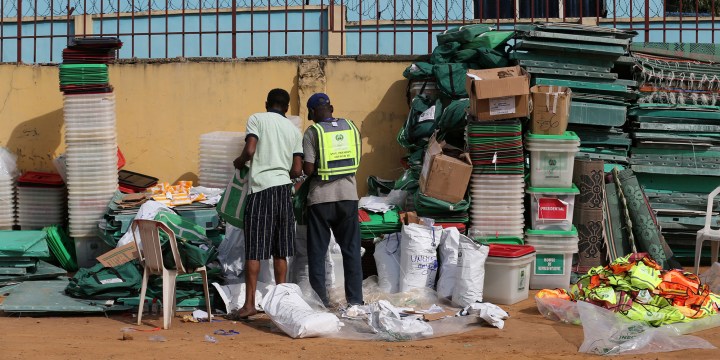
Yes, there was violence at many polling stations and attempts to prevent people from voting. But no proof of a grand conspiracy to steal the election has been presented yet. Old hands will shrug and tell you Nigerian elections are seldom perfect.
The liberal political scientist Ivan Krastev argues that the aim of democratic elections is to cool down hotheads while making the apathetic interested in public life. But why then, he asks, do elections produce the opposite by unleashing madness?
Krastev was referring to his native Bulgaria, which is without a government two weeks after inconclusive elections, and the aggrieved election denialism of Donald Trump which still stirs the passions of the Maga mob. He could also have pointed to the contest between the two bull elephants, President William Ruto and Raila Odinga, threatening the peace in Kenya.
This malady – where an election is cast as the “final battle” – certainly applies to Nigeria where the post-election shouting has been exponentially more acrimonious than anything seen during the campaign.
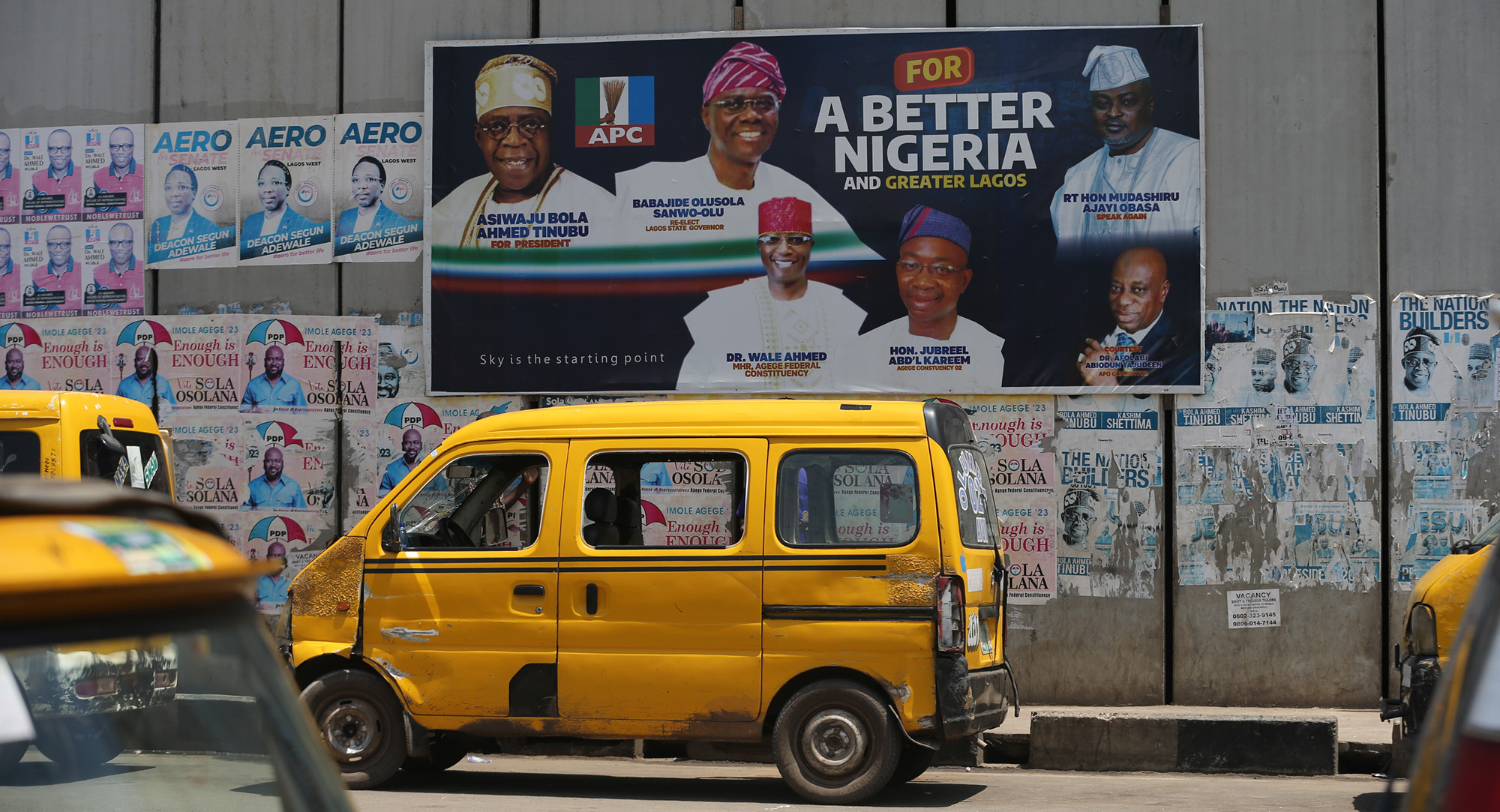
Lagos taxis parked near a billboard with photos of president-elect Bola Ahmed Tinubu (left) and other contestants on 1 March 2023. (Photo: EPA-EFE / Akintunde Akinleye)
An election tribunal will soon decide whether or not to uphold the victory of Bola Tinubu of the All Progressives Congress in the 25 February 2023 election, but the world has already made up its mind: the election was rigged. Nigerian institutions – the Independent National Electoral Commission (INEC), the courts, the police, the ruling party, and so on – are, in this view, irretrievably corrupt.
This matters: Nigeria is arguably Africa’s largest economy by GDP, the third-largest democracy in the world, and is home to one out of every five Africans. It is too big to fail.
And yet the predominant narrative that emerged is that the election was stolen from either of the two losing candidates, Atiku Abubakar of the People’s Democratic Party or – especially – Peter Obi of the Labour Party.
This narrative was fed from both inside and outside the country. The losing candidates refused to accept the outcome and are challenging the results in court. The anger and passion in particular of the legion of Obi’s zealots, the Obi-dients, has created the impression that just about everybody in Nigeria thinks the election was fraudulent.
They have been given great sustenance by many in civil society and the international media who, on the basis of his brilliant social media campaign and methodologically flawed polls, presented Obi as Nigeria’s saviour. They were so shocked when he came third that they could only attribute it to cheating, a judgement made easier by the messiness of the polls and the prevailing prejudice against Nigeria.
Read more in Daily Maverick: The monumental blunder that cost Nigeria’s opposition the election
Not everyone agreed. Ebenezer Obadare, a Nigerian expert at the Council on Foreign Relations in New York, penned a dissenting dissection of “the Lagos-New York-London echo chamber” in which he blamed the Western media for “scandalous negligence of the basic realities of Nigerian politics”.
Obadare argued that “by recklessly propping up Obi, giving the impression that he was on the way to the presidency, they have contributed to the public’s loss of confidence in the integrity of the Nigerian election”.
Now that the caravan has moved on, few have stuck around to see Obi’s star slowly fading.
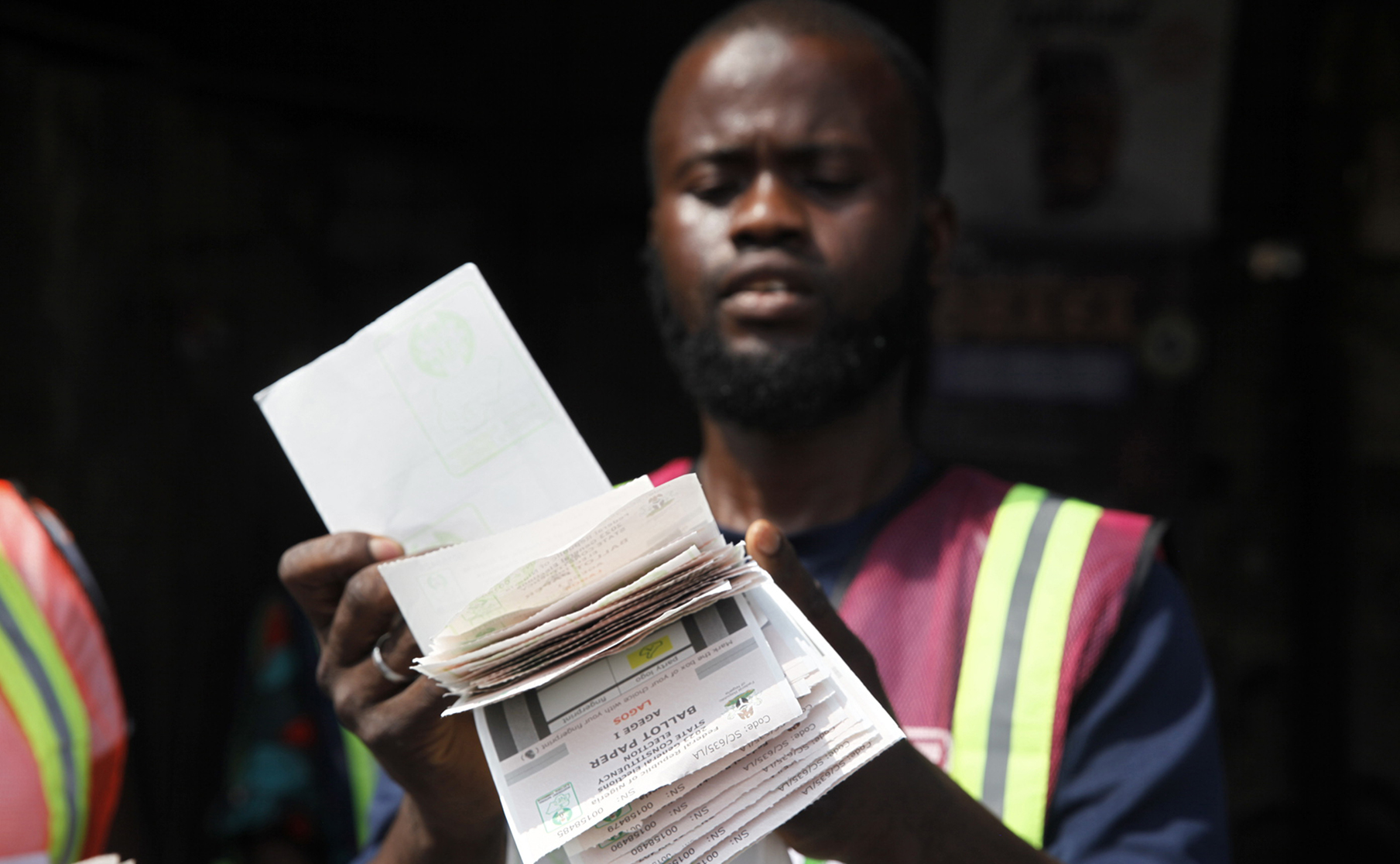
An electoral officer collates ballot papers at a polling station in Lagos on 18 March 2023. (Photo: EPA-EFE / Akintunde Akinleye)
The Labour Party – rescued from redundancy by Obi, who turned it into a special-purpose vehicle for his presidential aspirations – has been crashing and burning and this week purged many of its senior leaders.
Obi himself was caught on a leaked telephone call with the mega-wealthy Christian pastor David Oyedepo describing the election as a “holy war” and begging for help.
Read more in Daily Maverick: As Russia’s Wagner mercenaries expand over Africa, the continental air smells of Cold War again
Jibrin Ibrahim, the director of the Centre for Democracy and Development, points out that the great qualities that attracted the international media to Obi – youth mobilisation and the promise of technocratic governance – masked a darker reality of identity politics.
“His support was based largely on ethno-regional and religious bigotry… Irrespective of what he and his movement wanted, political reductionism brought them down to the level of the Christian alternative to the Muslim-Muslim ticket.”
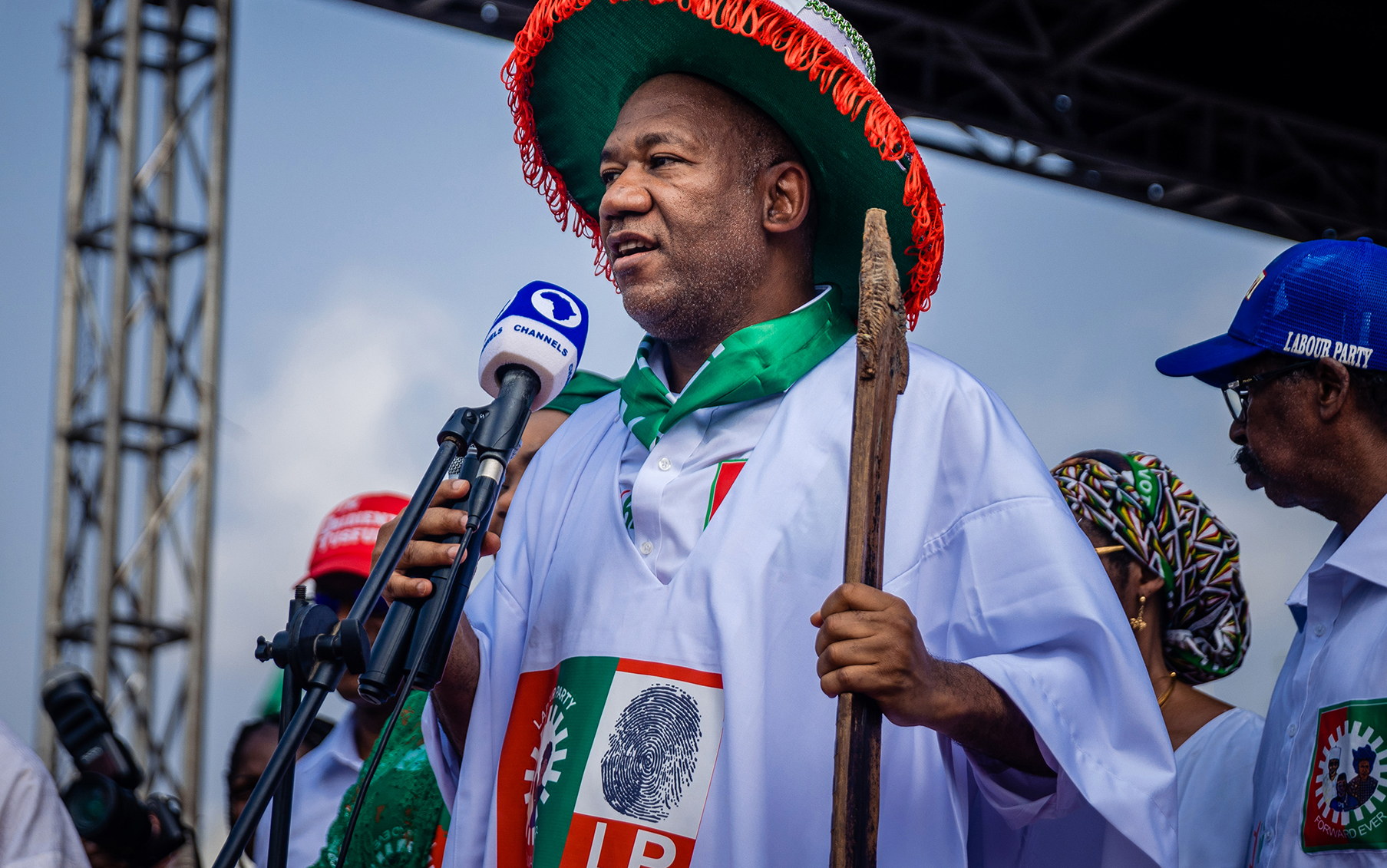
Yusuf Datti Baba-Ahmed, the running mate of Peter Obi, gives a speech at a campaign rally in Lagos on 11 February 2023. (Photo: Benson Ibeabuchi / Bloomberg via Getty Images)
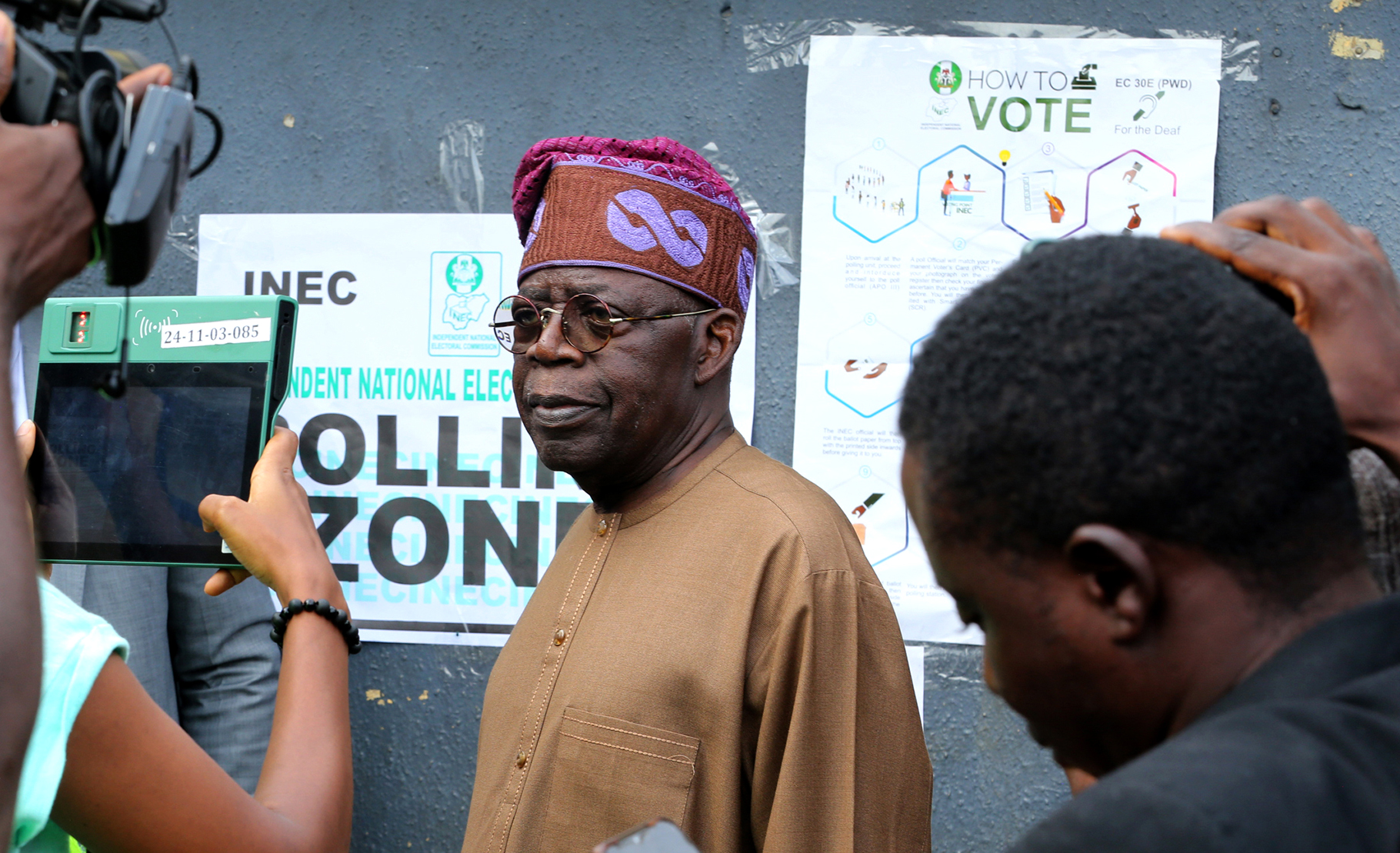
President-elect Bola Ahmed Tinubu arrives to cast his vote in the Ikeja district of Lagos on 18 March 2023. (Photo: EPA-EFE / Akintunde Akinleye)
Respected voices have been raised on Obi’s behalf, not least that of the novelist Chimamanda Adichie. In a blistering letter to US President Joe Biden condemning the US for congratulating Tinubu on his victory, she not only deemed the election fraudulent but effectively accused the chairman of INEC, Mahmood Yakub, of accepting a massive bribe to throw the election to Tinubu.
Misunderstanding the technology
This dispute should really be left to the judges on the tribunal to decide, but the attack on the integrity of the election has contaminated the reputation of all Nigerian institutions, and it is hard to see those who have made up their minds or the Obi-dients accepting an unfavourable outcome.
And yet the belief that INEC was able to rig the election is based on a fundamental misunderstanding of the technology. As Jibrin Ibrahim points out, many people have confused the IReV (Election Result Viewer), which was to be uploaded for the public to view the results in real time, and largely failed, with the Bimodal Voter Accreditation System, which ensured that only registered voters could vote, and which largely worked.
On the available evidence, transparency got a D but the integrity of the election got an A minus.
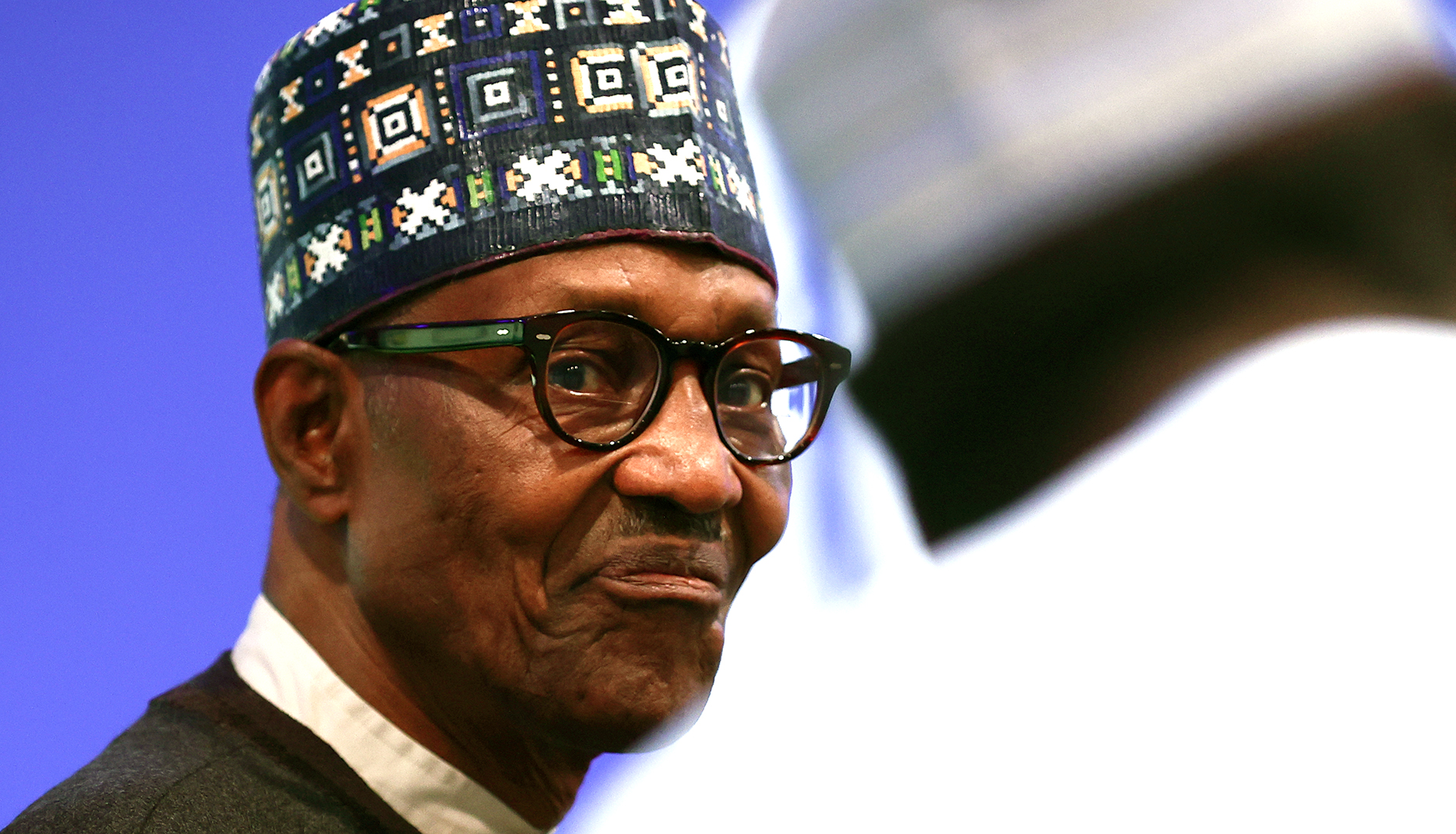
Nigeria’s President Muhammadu Buhari.(Photo: Adrian Dennis – Pool / Getty Images)
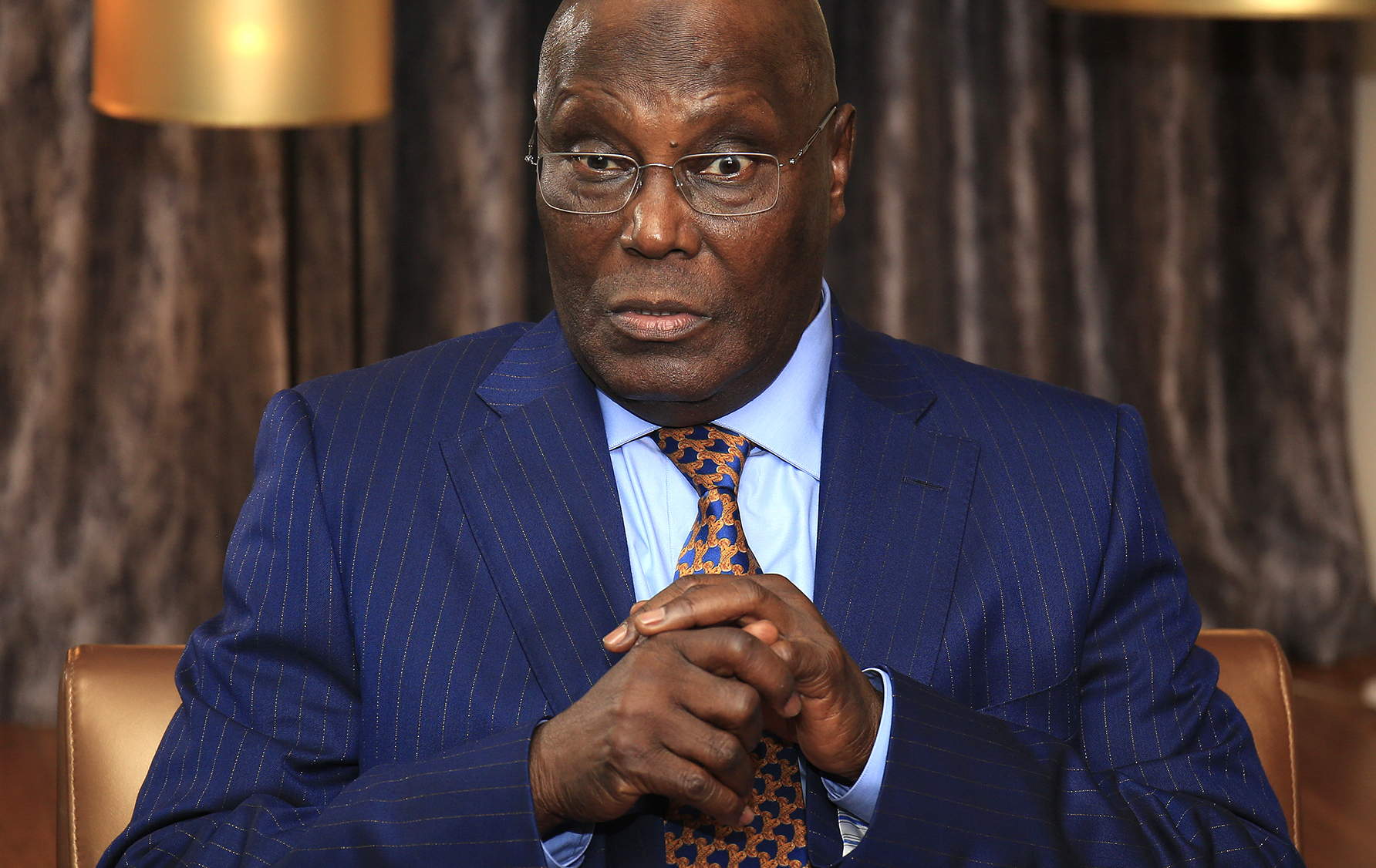
Atiku Abubakar, Nigeria’s main opposition presidential candidate, in Lagos on 16 January 2018. (Photo: George Osodi / Bloomberg via Getty Images)
No one would dare suggest that the elections reached Scandinavian levels of efficiency. There was violence at many polling stations and attempts to prevent people from voting. But no proof of a grand conspiracy to steal an election has been presented yet. Old hands will shrug and tell you Nigerian elections are seldom perfect.
Besides, while warlords are turning Sudan into hell, and while three countries in West Africa are under coup-induced military rule, it is worth pointing out that Nigeria has now experienced 24 unbroken years of democracy.
Read more in Daily Maverick: War, again: Ferocious play for power in Sudan spiralling out of control
Next month will witness the fifth peaceful transfer of power between civilian administrations since 1999. It was the first election since the return of democracy without a former military general on the ballot. Those old generals who sought to use the post-election chaos as an excuse to install themselves in power as “an interim government” failed.
It will be some time before the noise dies down, and the question marks against the legitimacy of Tinubu will complicate his task of leading Nigeria to recovery after the eight disastrous years of Muhammadu Buhari. The election has made reaching out and uniting the country, especially the predominantly Igbo South-East where Obi is from, an even more difficult task.
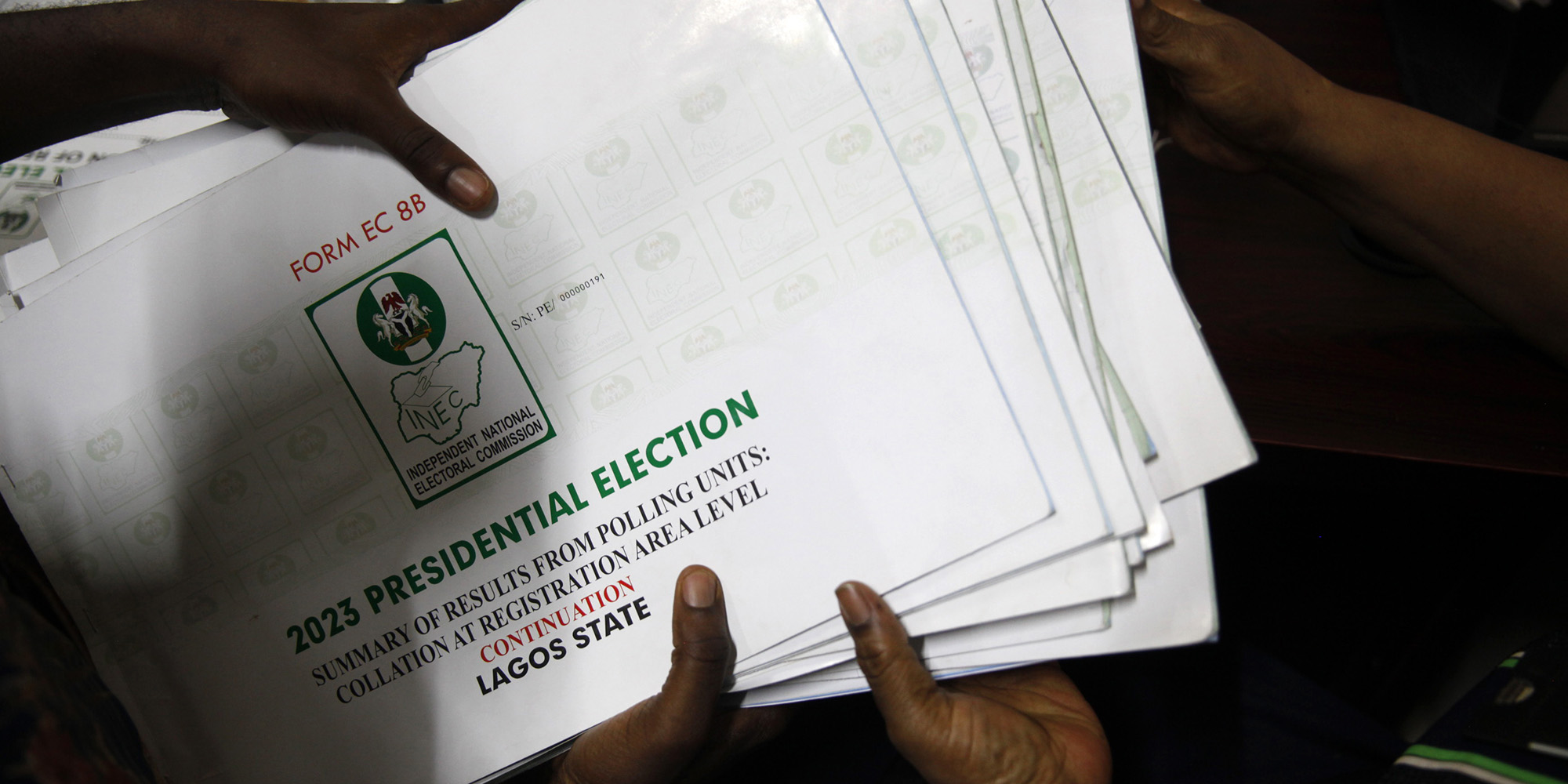
Electoral officers collate election results at the Independent Electoral Commission office in Lagos, Nigeria, on 27 February 2023. (Photo: EPA-EFE / Akintunde Akinleye)
But the conversation is starting to evolve. Rather than just dismissing Tinubu as a corrupt old gangster, analysts are starting to assess his legacy as the governor of Lagos between 1999 and 2007, his reputation as a man who can “get things done”, his impact as the most consequential Yoruba politician of his generation.
The art of democracy, says Krastev, is to leave the future open, not close it down.
Nigeria is a work in progress. The next stage of this project might yet surprise us. DM
Phillip Van Niekerk is the editor of the Africa, Unscrambled a newsletter covering the continent in a way you won’t read anywhere else. Get unscrambled by signing up right here.




















 Become an Insider
Become an Insider
Comments - Please login in order to comment.